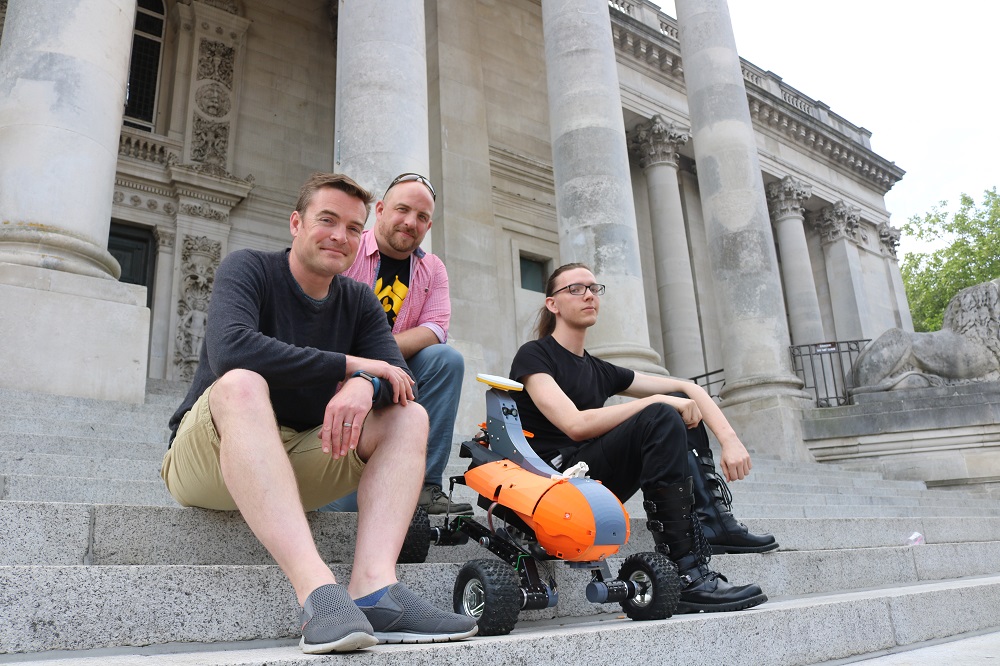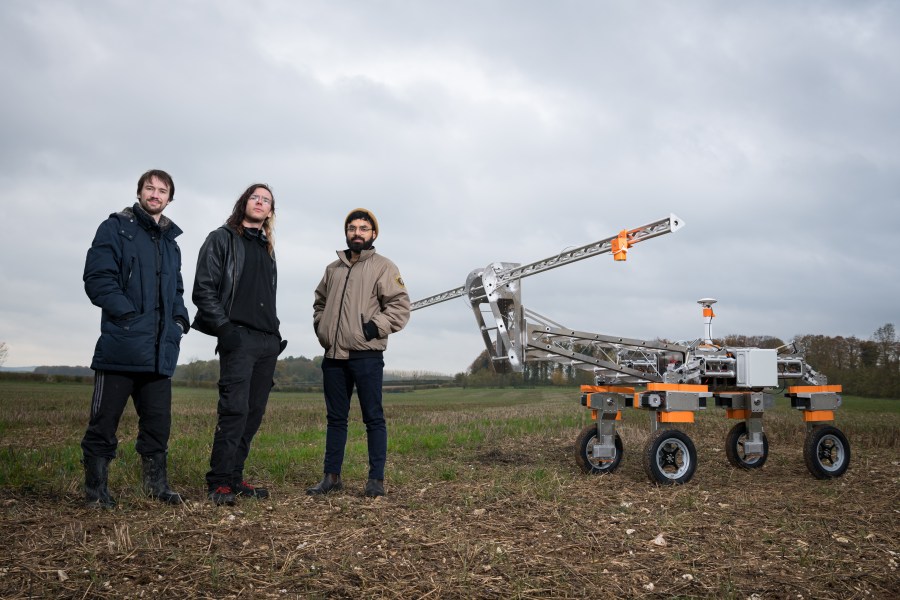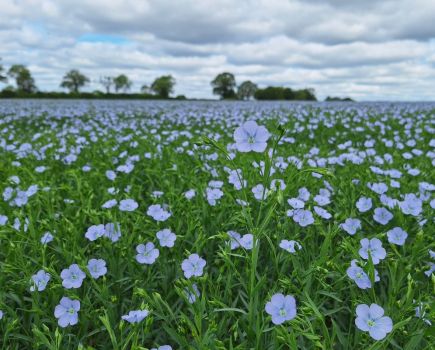 The Small Robot Company has officially launched its Wilma farmbot – the brains behind the team of agri-robots – at REAP 2020. Charlotte Cunningham reports.
The Small Robot Company has officially launched its Wilma farmbot – the brains behind the team of agri-robots – at REAP 2020. Charlotte Cunningham reports.
According to SRC, Wilma provides ‘per plant intelligence’ using precise information gleaned by Tom, the scouting robot, on the health of the plant.
If she identifies the plant as a weed then Dick – the world’s first non-chemical robotic weeder – is dispatched to zap it.
“The first commercial version of Wilma is being unveiled at REAP. She creates a per-plant crop map and is then AI-enabled to recognise disease and the nutrient status of the plant, enabling precision weeding by the farmbots and, in the future, application of water, nutrients or fungicide as appropriate – cutting chemical use and emissions,” explains Ben Scott-Robinson, CEO and co-founder of SRC.
“Wilma can direct Dick on the most effective course across the field. The robot then kills the weeds, such as blackgrass, using the Rootwave technology, which is electric so there is no problem with resistance.”
“In a post-glyphosate world the ability to quickly kill pernicious weeds as they appear means that farmers don’t need to wait to drill and can take the opportunity to get crops started in the better weather in early autumn. Our lightweight farmbot Harry will also be equipped to precision drill without damaging the soil.”
Answering key questions
Craig Livingstone was one of the first farmers to trial the new technology and says robotics offer a real chance to sustainably answer the many questions of modern agriculture in responding to climate change, carbon sequestration, biodiversity and of course soil and food security. “The light weight, low impact monitoring robot Tom is now on my farm scanning emerging wheat, for the first time giving me a per plant view of my fields.
“With the Wilma artificial intelligence, we can determine weed density and locations, and are also looking to assess potential yield. In time, by reducing the trafficking on our soil, minimising the use of pesticides, I’m convinced this can only add to more productive, functioning soils capable of producing quality nutritious food.”
SRC previewed its Farming as a Service model at the REAP 2017 Start-up Showcase and returned in 2018 to unveil Harry, a 1.8㎡ spider shaped prototype robot for drilling seeds autonomously.
Ben says: “The support we have been given by Agri-TechE at REAP has been invaluable. It has helped us to quickly gain traction in the industry and gain profile for our innovation with farmers, investors and partners. We are delighted to launch Wilma at REAP2020.”




